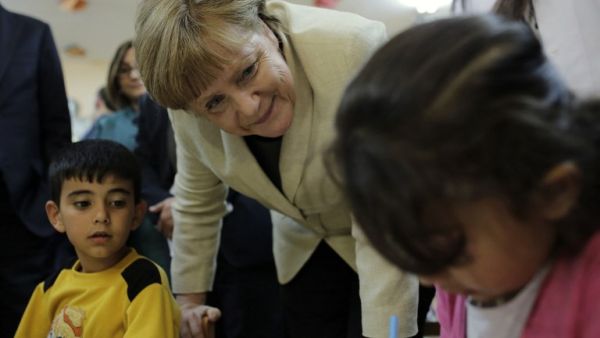The right-wing populist Alternative for Germany (AfD) party declared that "Islam does not belong in Germany" as it passed its new party manifesto on Sunday.
"An orthodox Islam that does not respect our constitution or even contradicts it is incompatible with our legal system and culture," the manifesto read.
Some 2,000 AfD members gathered in the south-western city of Stuttgart to adopt the manifesto, which was discussed during the two-day party congress that opened Saturday amid protests from leftist demonstrators who clashed with police.
The adopted party manifesto included a ban on financing the construction and operation of mosques from abroad; the rejection of minarets and muezzin calls as Islamic symbols of power; and a ban on head scarves for girls and women in schools.
On the issue of migration, AfD members omitted a proposal from Saturday that categorically rejected immigration, "in particular from foreign cultures."
The updated version of the programme now states: "We welcome immigrants who are qualified for the labour market and who are willing to integrate into society."
Several controversial resolutions remain in the text, including a call to facilitate the deportation of foreigners with a criminal record.
The AfD also added a passage to its draft manifesto calling to ban the slaughtering of animals according to Muslim and Jewish dietary laws.
The AfD, founded in February 2013, is known for its anti-immigration stance and has attracted strong support from those who criticized German Chancellor Angela Merkel's open-door policy for migrants fleeing Syria.
Some 1.1 million refugees and migrants entered Germany in 2015, the largest group of which come from Syria.
A survey by the Emnid polling organization, published Sunday in the Bild am Sonntag newspaper, found that AfD had climbed to third among German political parties, topping the Greens. The poll conducted within the last week put AfD at 13 per cent support among respondents, with the Greens at 12 per cent.
Merkel's ruling conservative Christian Democrats were at 33 per cent and their junior coalition partners, the left-leaning Social Democrats, at 22 per cent.
By Anne-Beatrice Clasmann








